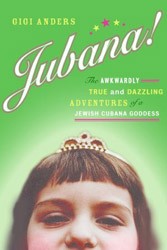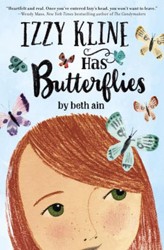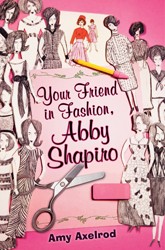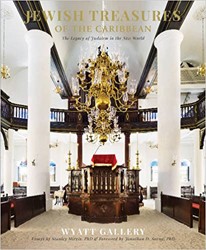Ruthie Mizrahi’s American dream is derailed when the fifth grader’s leg is injured in a violent car crash. Lucky Broken Girl describes how the recently arrived family of Cuban Jews deals with the accident, Ruthie’s recovery and their own acculturation to New York. Author Ruth Behar tells readers in an endnote that this is based on her personal story.
It is a year when getting a pair of Go-Go boots, moving up to the smart class and playing with good friends are Ruthie’s aspirations. Full of visual writing, the story sings with the cha-cha-cha music of Cuba and smells of ethnic cooking. The dialogues and descriptions give a portrait of a 1960 immigrant neighborhood in Queens, New York with neighbors from India, Europe and Mexico as well as African-Americans and Irish. Mostly Lucky Broken Girl is about Americanization, growing up, and the development of Ruthie as an artist. Her voice unabashedly describes her problems of transformation and adaption throughout the year of healing. “Why didn’t we stay in Cuba?” Ruthie’s mother asks repeatedly after the terrible accident the family experiences right after her father buys a too-expensive car. There is no specific mention of the Cuban Revolution that exiled the Mizrahis. World events are somewhat remote but Ruth’s hippie tutor brings in ideas of women’s liberation.
The story describes Ruth’s unique life as well as her intertwined relationship with her parents, relatives, neighbors, friends and medical professionals. Behar does not shy away from describing the family’s stress of adapting as well as the emotions surrounding difficult finances and Ruthie’s injury. There is an easy back and forth between English and Spanish as Ruth helps her parents navigate in an English speaking world. The plot focuses around hope and the character’s aspirations, as a person and a developing artist. Behar does not mince words describing the agony of the journey. Bedpans play a prominent role as does prune juice. The story acknowledges her mother’s burden caring for her daughter and trying to be positive in the face of the weight of being a newcomer. Ruth is drawn to the visual arts, words and stories. Letters to God process the experiences and feelings in her newly diverse world. Ruth writes down her Jewish family’s stories on a new typewriter. “What was that like, Baba, to travel all by yourself? Were you very scared?” Ruth asks her grandmother who, as a young woman, took a train from Warsaw to Rotterdam and then a ship to Cuba to escape the anti-Semitism of Europe. Ruth’s father is Sephardi and her mother is Ashkenazi.
Lucky Broken Girl captures the particular story of Cuban Jewish exiles like the Mizrahis and their friends dubbed “el grupo:” Like us they are Cuban and Jewish, they dance cha-cha-cha, and eat matzo on Passover. There’s pretty Mimi and her much older husband Bernardo, and their children Amaryllis and Abie who go to a yeshiva and know all the Hebrew prayers. Dorita, in an elegant white pantsuit, and Oscar, who’s very smart and an architect, are with their children, Beby and Freddy, the four of them are suntanned from a weekend in Miami Beach. And there’s Hilda, who is always worried Imre will be robbed because he sells diamond rings on Forty-Seventh Street, and their children Eva and Ezra, who are too shy to talk. “?Quieren caramelos, kenderle?” Ruth’s grandfather, called Zeide, asks his grandchildren offering sweets. He was born in Russia and mixes Spanish and Yiddish when he talks. Ruth’s grandmother calls her “shayna maideleh.” This family has experienced upheaval in every generation. But the Mizrahi family is not religious and welcome even the prayers of their nanny back in Cuba to the Catholic saint San Lazaro or the Santeria Orisha Babalu-Aye to help Ruthie recover.
Recommended for ages 10 and up.
Dina Weinstein is a Richmond, Virginia-based writer.





